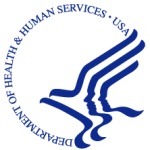- Industry: Government
- Number of terms: 33950
- Number of blossaries: 0
- Company Profile:
United States Department of Health and Human Services, Radiation Emergency Medical Management
To change the genetic material of a cell. The changes (mutations) can be harmful, beneficial, or have no effect.
Industry:Health care
Examination of the inside of the kidney and ureter, using a ureteroscope. A ureteroscope is a thin, tube-like instrument with a light and a lens for viewing. It may also have a tool to remove tissue to be checked under a microscope for signs of disease. The ureteroscope is passed through the urethra into the bladder, ureter, and renal pelvis (part of the kidney that collects, holds, and drains urine).
Industry:Health care
A condition in which the tissues lining the inside of the heart and the heart valves become inflamed (red and swollen). Endocarditis may be caused by infection with microorganisms, such as bacteria or fungi.
Industry:Health care
Any change in the DNA of a cell. Mutations may be caused by mistakes during cell division, or they may be caused by exposure to DNA-damaging agents in the environment. Mutations can be harmful, beneficial, or have no effect. If they occur in cells that make eggs or sperm, they can be inherited; if mutations occur in other types of cells, they are not inherited. Certain mutations may lead to cancer or other diseases.
Industry:Health care
The tube through which urine leaves the body. It empties urine from the bladder.
Industry:Health care
A test result that indicates that a person does not have a specific disease or condition when the person actually does have the disease or condition.
Industry:Health care
A drug used to treat pre-eclampsia and eclampsia (serious complications of pregnancy). Magnesium sulfate is also being studied for its ability to prevent the toxic side effects of certain drugs used to treat colorectal cancer. It is a type of anticonvulsant agent.
Industry:Health care
A break in the lining of the lower part of the esophagus, the stomach, or the upper part of the small intestine. Peptic ulcers form when cells on the surface of the lining become inflamed and die. They are usually caused by Helicobacter pylori bacteria and by certain medicines, such as aspirin and other nonsteroidal anti-inflammatory drugs (NSAIDs). Peptic ulcers may be linked to cancer and other diseases.
Industry:Health care
Inflammation of the mucous membrane that lines the rectum (the last several inches of the large intestine closest to the anus). Also called rectitis.
Industry:Health care
